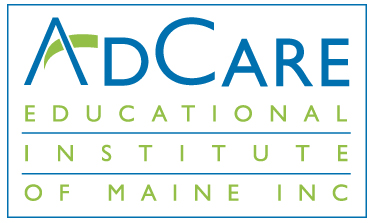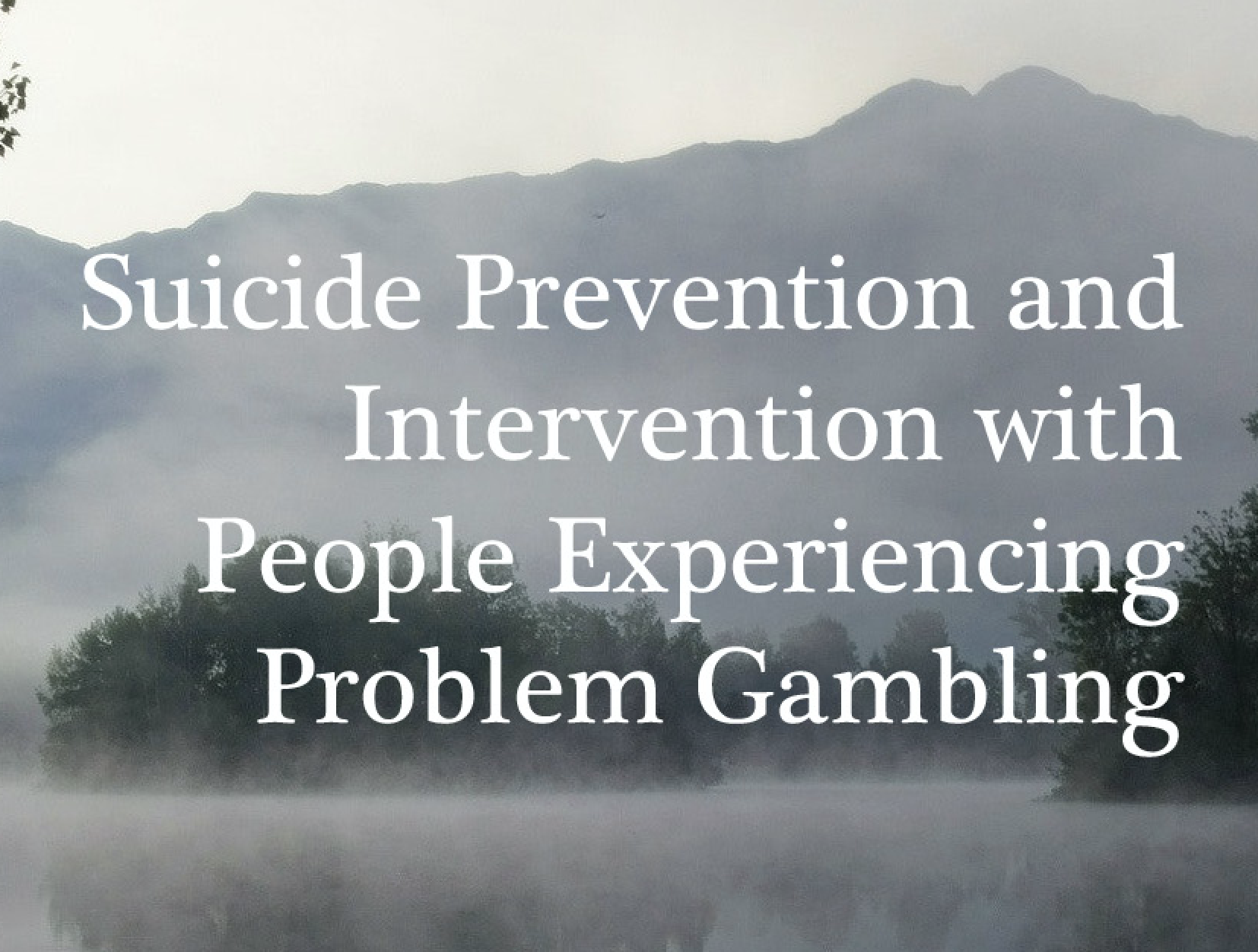September is Suicide Prevention Awareness Month. According to the National Council on Problem Gambling, one in five problem gamblers attempt suicide, about twice the rate of other addictions. The Problem Gambling Services Program at AdCare, in collaboration with the Maine Council on Problem Gambling, recently hosted a live webinar on Sept. 17, Suicide Prevention and Intervention in People Experiencing Problem Gambling.
Greg Marley, LCSW, Director of the Suicide Prevention Program at NAMI Maine presented to approximately 100 participants, including treatment providers, casino staff, gambling self-exclusion site employees, DHHS personnel, case managers, children’s services providers, prevention professionals and recovery center staff.
Suicide, attempted suicide and suicidal ideation is common among problem gamblers. Greg pointed out that, among people experiencing problem gambling and gambling disorder, there are “pretty significant increases in rates of mood disorders and substance use disorders” and there are “patterns of losses that are stigmatized and often drive a person inside and into isolation.” He talked about the financial losses, relationship losses, and erosion of self-esteem which lead to a sense of desperation which can lead to a crisis, a sense of hopelessness and “absence of the ability to see hope.”
He said, “In a path of a problem gambling crisis, feeling trapped like ‘I’ve created this situation, but I don’t see a way out of it.’ That not being able to see a way out, when problem solving is broken down, that’s huge.”
There is a lot of stigma attached to problem gambling, as well as to suicide, making it difficult for people to reach out for help. Greg discussed some common myths about suicide that impact the willingness of people to get involved. He also pointed out that the prevention and intervention of suicide for someone who is in crisis because of their gambling, is very much like that for people experiencing other crises.
Most of the time, the intervention is going to happen by someone who knows them and is connected with them in some way. Greg said one of the reasons there is a focus on warning signs is because a person who has a baseline understanding of an individual, will notice the changes in their communications and say “Whoa, this person has turned some kind of corner that makes me worried.”
Greg said not to be timid about bringing up the topic of suicide with someone who is showing warning signs. Research shows that it if it enters your mind that they may be suicidal, it’s very likely that they’ve been suicidal for a while.
Be direct, caring and non-judgmental. Listen carefully and say, “Let’s make the call together to connect you with the help you need, and I’m going to be here as long as you need me.”
If lethal means are present, call 9-1-1. If lethal means are not present, call Maine’s Crisis Hotline (1-888-568-1112, call, chat or text). You can call with the individual and support them in getting help.
If you’d like to view the recording of the webinar and download related resources and documents, the webinar is available here: https://www.proprofs.com/training/course/?title=suicide-prevention-and-intervention-with-people-experiencing-problem-gambling_5f6b5cd879dbf
New Strategies in Helping Families and Loves Ones Addressing Problem Gambling
Lori Rugle, PhD
Nov. 12, 2020
12:00 – 1:00 PM (Eastern)
Details and registration coming soon.

